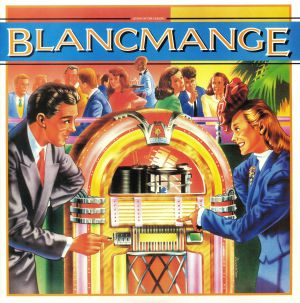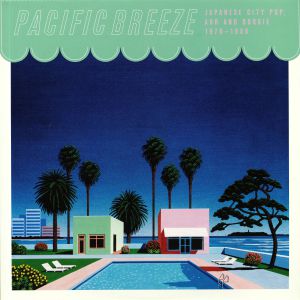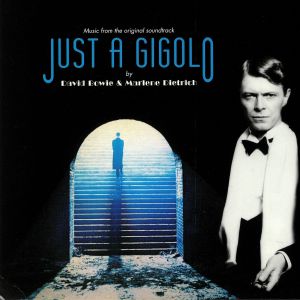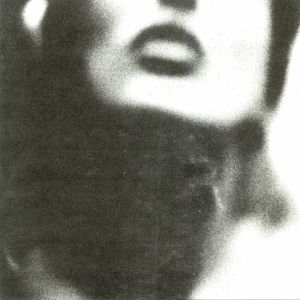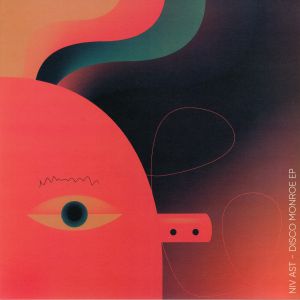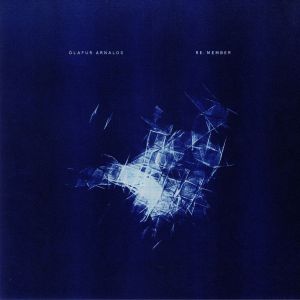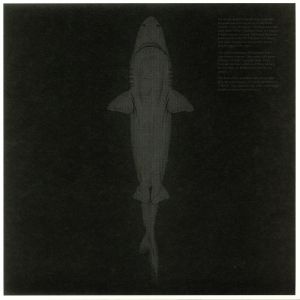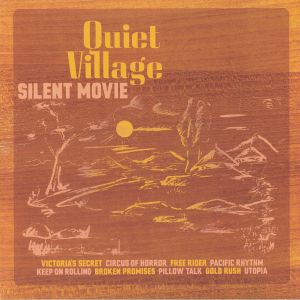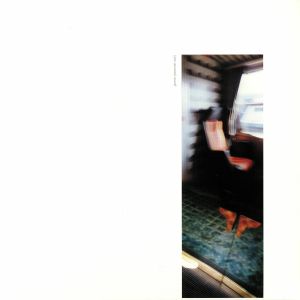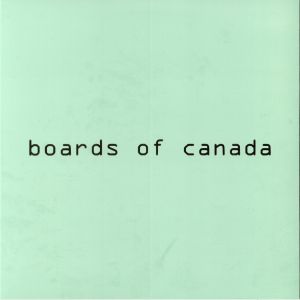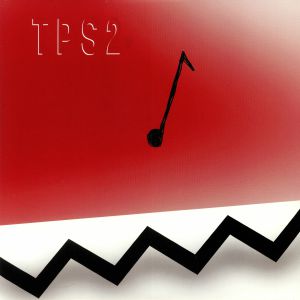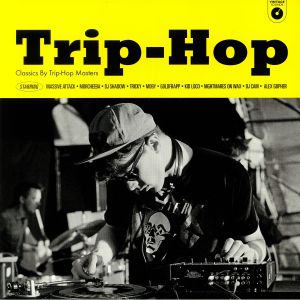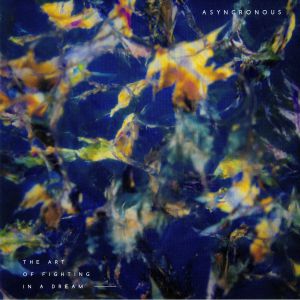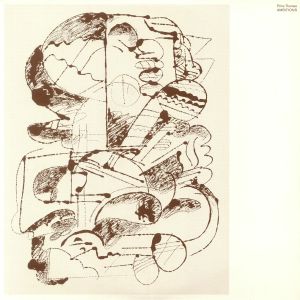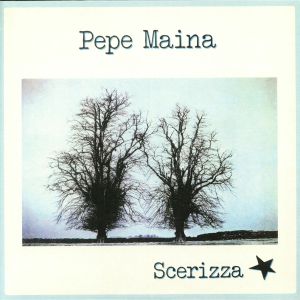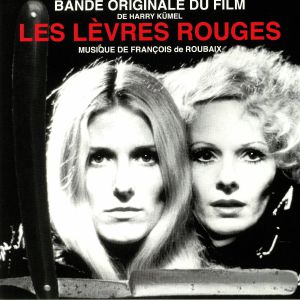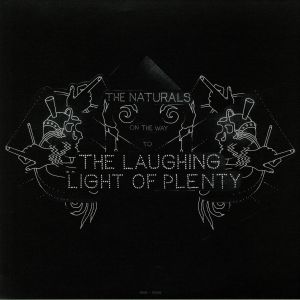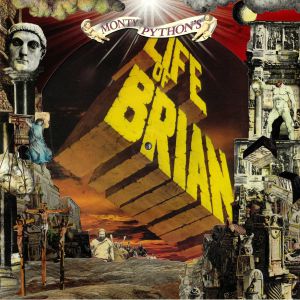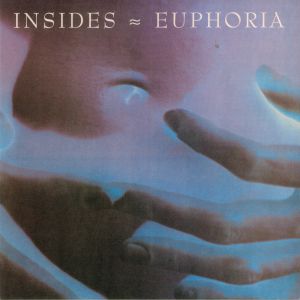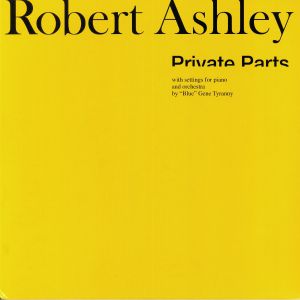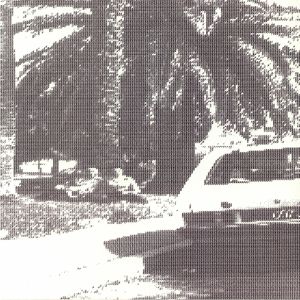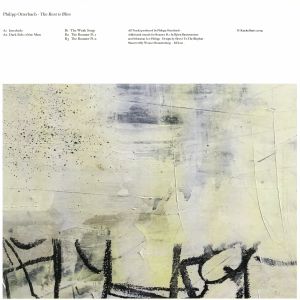
Juno Recommends Leftfield
Juno Recommends Leftfield April 2019
7 May 2019
Read more...
1
Cat: LMS 5521270EP. Rel: 29 Apr 19
Coldwave/Synth
out of stock $17.68
2
Review: The Belgian crate diggers behind the STROOM label have dug up more overlooked gold here, bringing together two disparate but equally impressive tracks. On the A-side you'll find Kyoto's 1984 single "Venetian Blinds", a curious but hugely enjoyable chunk of bustling, off-kilter synth-pop rich in crunchy machine drums, undulating bass, Prince style guitars and stylish female vocals. Over on the flip it's all about Zoe Sinatra's 1990 B-side "Mais Qu'est-ce Que Tu Fumes". This semi slow-motion affair wraps half-whispered, half-sung bi-lingual vocals and alien synthesizer melodies around a rubbery but chugging electronic groove.
...Read more
out of stock $13.25
3
VARIOUS
Cat: LITA 163. Rel: 06 May 19
Disco/Nu-Disco
Review: U.S label Light In The Attic has previously served up compilations exploring various Japanese takes on Western music, most notably folk, rock, ambient and new age. Here they switch tack, curating a brilliant double-album set that showcases the best Japanese synth-pop, AOR and boogie recorded between 1976 and '86. The quality threshold remains impressively high throughout, from the blue-eyed-soul breeze of Taeko Ohnuki's "Kusuri Wo Takusan" and the Chaz Jankel-meets-Thompson Twins style throb of Haruomi Hosono's "Sports Men", to the talkbox-sporting late night AOR-pop flex's Hiroshi Satoh's "Say Goodbye" and the glistening, Latin-influenced jazz-funk brilliance of Masayoshi Takanaka's steel pan-sporting "Bamboo Vender".
...Read more
out of stock $37.86
4
Cat: MOV 7053. Rel: 29 Apr 19
Soundtracks
Review: Here's something to get Bowie fans hot under the collar: a first worldwide pressing of the Thin White Duke's "Revolutionary Song", his only contribution to the soundtrack of 1978 West German flick "Just A Gigolo", in which he also starred alongside silver screen legend Marlene Dietrich. The song was recorded with a local band of musicians hastily dubbed "The Rebels" and sees Bowie in classic crooner mode, adding his distinctive vocals to a jangly, largely acoustic number that's effectively a folksy take on waltz. Over on side B there's a chance to enjoy one of Marlene Dietrich's last ever recordings: an atmospheric cover of 1930s cabaret standard "Just A Gigolo" which ended up being the movie's title track.
...Read more
out of stock $13.25
5
out of stock $10.51
6
Review: Lhasa is the brainchild of Alain Raes from Siegen, Germany. As a teenager he was inspired by Tubeway Army's "Are Friends Electric" and Art Of Noise's "Beatbox". In 1985 he began collecting analog equipment (Prophet-5; Oberheim OB-X; Linn LM-1) as digital synthesizers had started to become more popular. In 1986, New Beat was born in Belgium. Dancers tapped into the darker side of synth pop, and DJs would play 45 rpm records at 33 with the pitch control set to +8. Alain was playing in New Wave bands and had started production work and synth programming for other acts.
In 1988 he self-released the debut Lhasa single 'Acetabularia' / 'Acetatechno', with help from Kris Tremmery on vocals and concept. The record combined the icy melodies of Gary Numan and John Foxx with with the mechanical rhythms of Detroit techno and EBM. Thematically, both tracks revolve around the end of life on Earth, and include samples from 'Dr. Strangelove'. For this first time reissue, we've added 4 bonus tracks rescued from a 1990 recording session DAT tape. These demos show further development of the Lhasa sound with updated instruments (Roland D-20, Yamaha TX16W, Korg 707), faster tempos, and menacing proto-rave energy. All songs have been mastered by George Horn at Fantasy Studios in Berkeley. Each copy includes an 11x11 poster with photos and liner notes by Alain.
In 1988 he self-released the debut Lhasa single 'Acetabularia' / 'Acetatechno', with help from Kris Tremmery on vocals and concept. The record combined the icy melodies of Gary Numan and John Foxx with with the mechanical rhythms of Detroit techno and EBM. Thematically, both tracks revolve around the end of life on Earth, and include samples from 'Dr. Strangelove'. For this first time reissue, we've added 4 bonus tracks rescued from a 1990 recording session DAT tape. These demos show further development of the Lhasa sound with updated instruments (Roland D-20, Yamaha TX16W, Korg 707), faster tempos, and menacing proto-rave energy. All songs have been mastered by George Horn at Fantasy Studios in Berkeley. Each copy includes an 11x11 poster with photos and liner notes by Alain.
...Read more
out of stock $12.44
7
Cat: SC&P 006. Rel: 22 Apr 19
Coldwave/Synth
Review: Niv Ast only has one other release to their name, a self-released album that landed no less than five years ago. Now Snap, Crackle & Pop have tapped up the mysterious producer for a striking record that matches modern 4/4 styles with new wave grit, leading in with the seriously moody "Quebec / Makolet". "Disco Monroe" has a slower tempo to appeal to the chugger crowd, with a seductive French vocal hovering over the top of the steady trucking rhythm section. Khidja tackles "Quebec / Makolet" on the flip, injecting some spaced out processing into the original to create an otherworldly version that does a great service to the source material. Mr TC then pings "Disco Monroe" out into a heavily dubbed hinterland, where the delay feedback and reverb decays rain down heavy over a slow, fractured beat.
...Read more
out of stock $9.39
8
Cat: BW 02RSD. Rel: 29 Apr 19
Coldwave/Synth
Review: When he first emerged in the 1990s, Damon Baxter AKA Deadly Avenger was best known for laying down breakbeat-driven club cuts heavily influenced by funk, soul and hip-hop. He's completely flipped the script in recent years by variously turning his hand to chillwave, darkwave and John Carpenter style soundtrack fare. His latest album continues on this theme, offering a range of bold, synthesizer and drum machine heavy tracks that veer from bouncy and floor-friendly ("Your God Is Too Small" and the EBM-influenced "Destroy All Humans"), to slow and creepy ("A Promise For Kumiko", "The Mysterions"), deliciously glassy-eyed (the sunrise rush of "Gunman Omega" and "Tokyo SOS") and intoxicatingly chugging ("Myuki My Love").
...Read more
out of stock $23.20
9
Cat: 772562 2. Rel: 29 Apr 19
Ambient/Drone
Review: Second time around for Icelandic neo-classical composer Olafur Arnalds' 2018 album "Re:Member". This version, pressed for Record Store Day 2019, boasts a fine bonus 7" containing strings-only re-recordings of three original album tracks ("Saman", "Momentary" and "Nyepi"). These are superb and genuinely compliment the original 12-track set, which was produced using specially created software capable of triggering new musical sequences on "two pianos chained to his primary instrument". This cutting-edge approach, combined with live percussion and the multi-instrumentalist's own considered electronics, resulted in an album that remains thoughtful, mesmerizing and entertaining in equal measure.
...Read more
out of stock $19.34
10
Review: Acclaimed Finnish experimental label Sahko tends to be rather matter-or-fact about its releases, shying away from hype in order to let the music do the talking. They seem to be taking that approach to the extreme on "Sahko 30", an album of ghostly, slowly evolving ambience that arrives with no artist, title or track credits. The two long, lingering tracks evoke mental images of icy, windswept isolation with just the sound of creaking glaciers and a crackling shortwave radio for company. It's evocative, enjoyable stuff - once you navigate an extended opening blast of radio static that kicks off the A-side - and is apparently the work of "an experimental artist who wishes to stay anonymous". We may never know their identity, but it's safe to say the music on "Sahko 30" should last the test of time.
...Read more
out of stock $14.93
11
Cat: K7 225LP. Rel: 29 Apr 19
Experimental/Electronic
out of stock $24.32
12
Cat: FAITBACK 09LP. Rel: 08 Apr 19
Experimental/Electronic
Review: Jan Jelinek has made many fine albums over the years, under both his given name and a handful of occasional aliases. One such pseudonym was Gramm, a handle he plucked out of thin air for the release of the now celebrated 1999 full-length "Personal Rock". Here that set is given a deserved 20th anniversary vinyl reissue, allowing a whole new generation to investigate the dusty nooks and crannies of one of the producer's most techno-centric releases. It is every bit as sample-heavy, glitchy and crackling as his other work, whereas other outings explored skewed hip-hop beats and downtempo grooves, "Personal Rock" was more informed by the steady pulse of dub techno, the deep space fluidity of ambient techno and the locked-in hypnotism of original era minimal techno. The results are out of this world.
...Read more
out of stock $24.88
13
Review: When it comes to crafting distinctively off-kilter "ethno-techno" built around hypnotic, polyrhythmic drums, there's nobody quite as good as Florian Meyer AKA Don't DJ. Further proof of his majesty in this regard arrives via "Eternal Return", the epic, peak-time-focused opening track from the producer's latest double-pack excursion. Those seeking percussive, floor-friendly fare should also check "Circular Time", another bongo-laden tribal techno workout that sees Meyer get locked into an attractively organic drum groove for the best part of 12 minutes. Meyer's ability to conjure up odd but brilliant home listening fare is explored elsewhere on the EP, with the noisy, abstract weirdness of "Perpetual Flow" being joined by the chiming, hedgerow-fresh ambient bliss of awe-inspiring closing cut "Perseus-Pieces".
...Read more
out of stock $15.20
14
Review: Boom! Finally another reissue of Boards Of Canada's seminal Hi Scores LP from 1996! Along with the likes of Aphex Twin, LFO and Squarepusher, these guys have helped to define how we see electronic music today and this particular LP is arguably their most complete when it comes to the dancefloor. The title track is a twisted, floaty bindle of breaks and beats, but it doesn't end there. Tracks like "Nlogax" are inherently Detroitian in nature thanks to the bleepy drum machines inside, and all we can say is that if you haven't laid hands on this album yet, you shouldn't miss the opportunity to cop it now. It's still so relevant and contemporary, it hurts.
...Read more
out of stock $11.89
15
Cat: 060349 7854936. Rel: 29 Apr 19
Soundtracks
out of stock $34.55
16
out of stock $19.62
17
Review: While many of Slow Life's releases have been firmly focused on the dancefloor, there's enough variety in the label's wholeheartedly electronic output to suggest that this undoubtedly laidback and spacey album is not too much of a curveball. Crucially, it's really rather good, suggesting that debutant duo Asyncronous has a big future ahead. Musically, it's like an echo of the early 1990s, with the Ukrainian production pair offering up tracks that variously touch on heavyweight ambient dub, Pete Namlook style becalmed soundscapes, the melodious IDM bliss of Boards of Canada, the "Artificial Intelligence"-era twinkle of Black Dog and the shimmering futurist synth-scapes of Tangerine Dream.
...Read more
out of stock $13.25
18
Cat: STS 344LP. Rel: 08 Apr 19
Experimental/Electronic
Review: Norwegian disco titan Prins Thomas returns to his regular stomping ground of Smalltown Supersound with this, his sixth solo studio album. Thomas is sounding as vibrant as ever, his musical ideas spilling forth in glorious arrangements of organic instrumentation and gentling bubbling electronics that melt into a mellow, groovy sonic realm. There are hazy, cosmic moments to be savoured on the likes of "Feel The Love", and more adventurous rhythmic trysts like the nagging, snaking percussive melee of "Ambitions". Thomas' studio proficiency is more than matched by his imagination and creative ambition - would you expect any less from such a titan of Scandinavian electronic music?
...Read more
in stock $22.10
19
out of stock $6.91
20
Review: Prime diggers of obscure gems Archeo set their sights on this stunning new age curio from the late 70s. Pepe Maina released two albums in his late 70s heyday, and it's the second of these, "Scerizza", that gets a long overdue polish up. This is far from one dimensional wallpaper music - the sonic range covers choral pieces, delicate melodic meanderings, gamelan-esque refrains, Fourth World incantations and more besides. There's even some sweet synth jams to melt into, ensuring there's something for everyone to get into. Fans of Jon Hassell, Daniel Schmidt or Laraaji should sink very easily into this rich, multifaceted album.
...Read more
out of stock $33.15
21
Cat: MOV 7054. Rel: 29 Apr 19
Soundtracks
out of stock $4.98
22
Review: It's startling to think Bibio has been comfortably nestled on Warp Records for 10 years now. The folk-leaning beatsmith has taken his sound in subtly shifting directions while staying true to his delicate, melodious identity. On this latest album "Ribbons" he's sounding sweeter than ever, twirling up a 60s reverie of finger-picking guitar and tender vocals guaranteed to bring on sunshine, real or imaginary, no matter what time of year you pop it on. There are some more crooked moments to be enjoyed for fans of the more beat-oriented Bibio sound - "Pretty Ribbons & Lovely Flowers" has a wonderful crunch to it, but for the most part it's a treat to get lost in the pastoral reverie of the album's main themes.
...Read more
out of stock $21.84
23
Cat: ERS 019. Rel: 06 May 19
Experimental/Electronic
Review: Secret Circuit's Eddie Ruscha and Rub N Tug's Thomas Bullock joined forces as Laughing Light Of Plenty for an EP back in 2008, and followed it up with an album on Whatever We Want Records in 2010 which largely got lost in a warehouse stock malfunction. Now Emotional Response are doing the right thing and giving the record a second airing under the duo's alternative alias The Naturals, and it's not hard to see why they wanted to do the reissue. Loose and funky, but also deliriously psychedelic and indebted to the 1970s golden era of songwriting, this is a quintessential Emotional record if ever we heard one.
...Read more
in stock $21.00
24
out of stock $21.56
25
Review: For a time between 1999 and 2007 Bogdan Raczynski was profoundly prolific in the field of what some like to call drill & bass. Firmly rooted on Rephlex Records, he slung out reams of wild style breaks and twitchy electronica with a tongue in cheek insouciance that acted as a foil to the serious production chops embedded in his complex beats. Now Raczynski is back after some 12 years, and he's lost none of his madcap sparkle. Landing squarely between mischievous fun and mind-bendingly brilliance, this is an album packed with incredible cuts from the twinkling melodic delight of "213 213r" to the rabble rousing "332 23t422." Welcome back Bogdan, we missed you!
...Read more
out of stock $26.81
26
Cat: BWIANRSD 19. Rel: 29 Apr 19
Soundtracks
out of stock $18.52
27
Cat: BNSD 033LP. Rel: 29 Apr 19
Experimental/Electronic
Review: After quitting Earwig in the early '90s, multi-instrumentalist J. Serge Tardo and vocalist/bassist Kirsty Yates struck out on their own as Insides. The first fruits of their collaborative labour was "Euphoria", a 1993 debut album that effortlessly joined the dots between Michael Brook style ambient, drowsy dream pop, glistening, guitar-laden soundscapes, off-kilter trip-hop and hazy, ethereal West Coast rock. It was a formula that guaranteed plenty of highlights, as this timely Record Store Day reissue proves. Our favourites include the pastoral warmth of "Carly Simon", the Global Communication-esque "Bent Double", the sparse and loose "Yes" and the Steve Reich-influenced bliss of "Distractions".
...Read more
out of stock $19.62
28
Review: The illustrious and complex catalogue of Robert Ashley is a many-sided dice with all kinds of points of entry. Fortunately reissue culture sees some of the most significant highlights coming to the fore, guiding you into the world of this visionary artist. "Private Parts" was Ashley's second studio album, preceding his widely hailed classic "Automatic Writing". It's made up of two long form pieces centred on Ashley's freestyle poetry, with a backdrop of synths and tabla creating a comfortable bed for his thought-provoking words. "The Park" is the more melodious, soothing creation, but the words drill in deeper over the rhythmic focus of "The Backyard." Either way, a landmark piece of work from a truly singular artist - to think it was originally released in 1978...
...Read more
out of stock $28.74
29
out of stock $22.10
30
out of stock $12.44

 USD
USD




